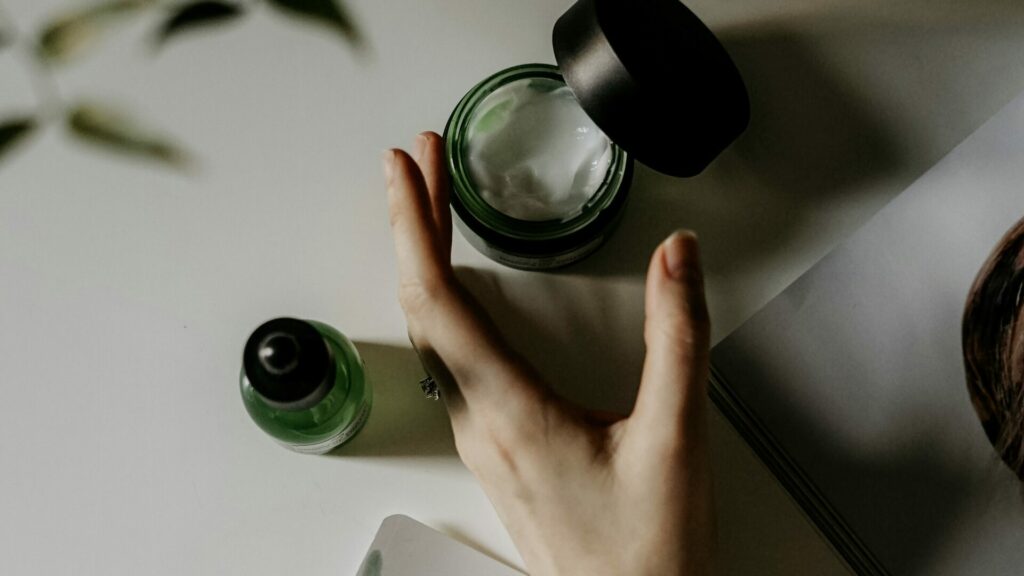Young girls are increasingly falling prey to social media trends promoting complex skincare regimens aimed at preventing aging, but these products may be causing more harm than good.
Scarlett Goddard Strahan, only 10 years old, developed an elaborate skincare routine after hours of social media scrolling in fifth grade. Influenced by online personalities showcasing flawless complexions, she began worrying about wrinkles at a tender age.
However, the consequences were severe. "One evening, Scarlett experienced intense burning on her skin, which erupted in blisters. The excessive use of adult-strength products had severely damaged her skin. Months later, small bumps remain on Scarlett's face, and her cheeks become red in sunlight," as reported by AP News.
"I was afraid of getting wrinkles and looking old," Scarlett explained. "If I had known how much this would affect my life, I never would have applied these products to my face."
The issue lies in the fact that these skincare products are not formulated for children's delicate skin. While social media promotes their use, an increasing number of young girls are visiting dermatologists with "rashes, chemical burns, and other allergic reactions to [these] products."
Dermatologist Dr. Brooke Jeffy stated, "When children use anti-aging skincare, they can actually induce premature aging, damage the skin barrier, and cause permanent scarring."
She further added, "It's inappropriate for children to use products addressing adult skin concerns like wrinkles, hyperpigmentation, and dullness, which kids don't have."
Besides physical damage, beauty-centric social media trends also negatively impact girls' mental and emotional well-being.
Familyguide reported on the link between social media use and girls' self-confidence:
Currently, 46% of girls spend over six hours daily on social media.
"Why is this significant? The Girls' Index™ discovered a correlation between confidence and social media use," ROX shared on Instagram. "Lower social media usage correlates with increased reports of confidence among girls. Increased time on social media correlates with reports of lower confidence levels."
ROX explained that "girls who spend the most time on social media (10+ hours daily) are 25% less likely to describe themselves as confident compared to those who spend the least time on social media (under 2 hours daily)."
Kris Perry, executive director for Children and Screens: Institute of Digital Media and Child Development, noted, "Girls are being inundated with idealized beauty images that set a standard that could be very difficult — if not impossible — to achieve."
Earlier this year, therapists Lindsay Fleming, LPC, and Stacy McCarthy, LCPC, told Buzzfeed, "Girls who have never discussed skincare before are now fixated on having 10-step routines. It becomes more about having the product all their friends want/have than the actual impact that product has on their face."
How should parents address this trend? Rather than enabling potentially harmful skincare routines, they could provide their daughters with age-appropriate products.
Dermatologist Dr. Mamina Turegano advised Buzzfeed, "A cleanser, moisturizer, and sunscreen are skincare products that are safe for kids. If a child has acne and oily skin, they can incorporate a salicylic acid-based cleanser or topical serum."
Ultimately, parents should remind their daughters that their worth comes from God and who He created them to be. Instead of comparing themselves to others, they can agree with the psalmist and praise God that they are "fearfully and wonderfully made."
You may also like
-
Actress’ Baby Only Wanted THIS?! God SHOCKED Her With The Truth!
-
Discord: Is Your Child's Soul at RISK? (The TRUTH Parents MUST Know!)
-
Candace Cameron Bure's Kids Asked Her *This* Question About Faith?!
-
Hollywood Star's Secret Weapon for Sharing Faith Fearlessly!
-
PBS Kids Just Did WHAT?! The Future of Family Gaming is Here!

